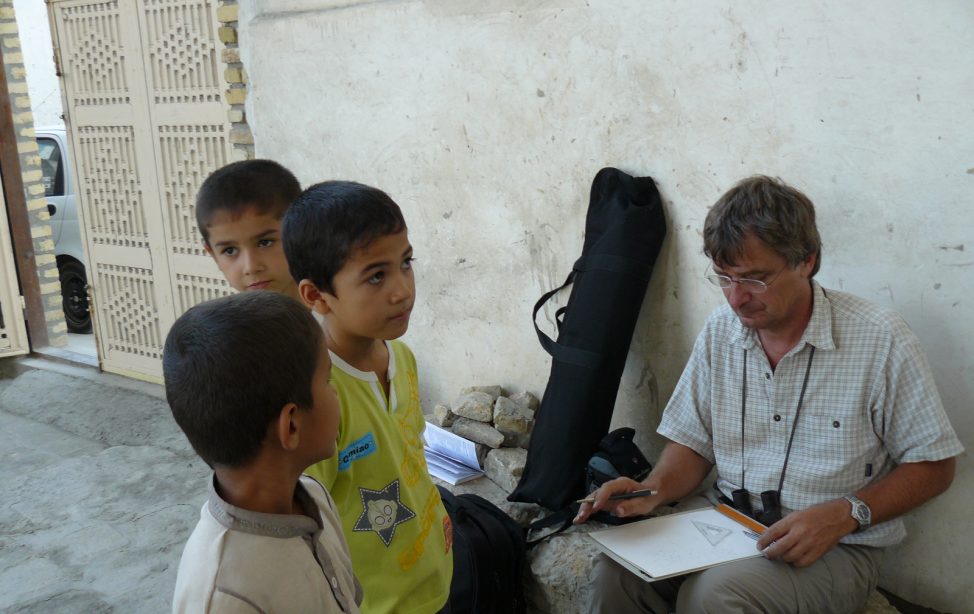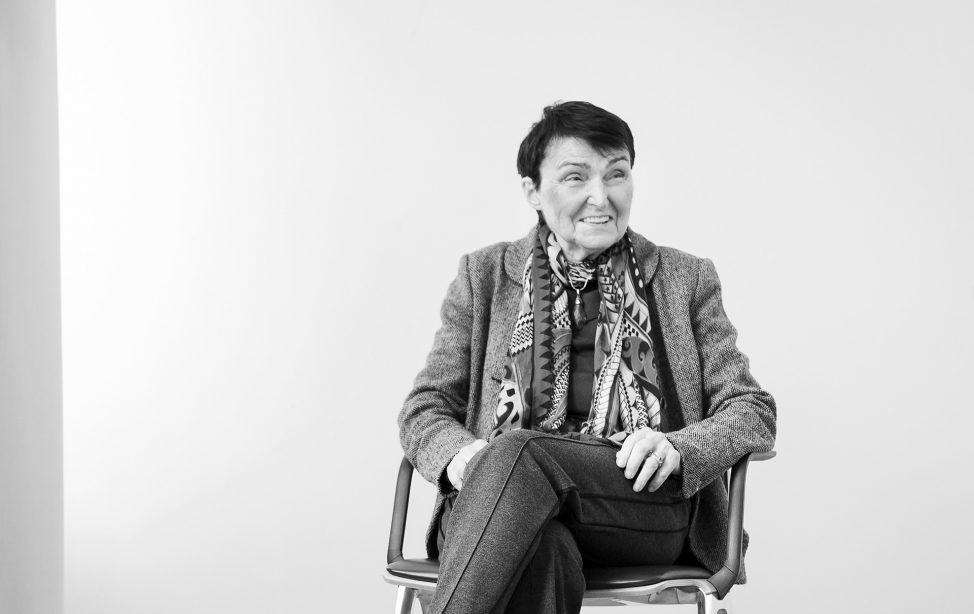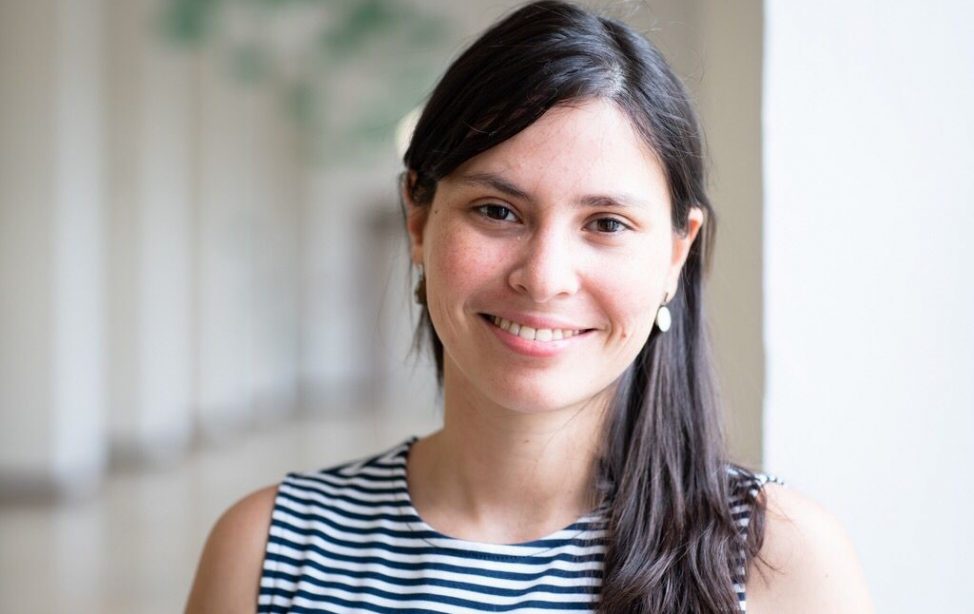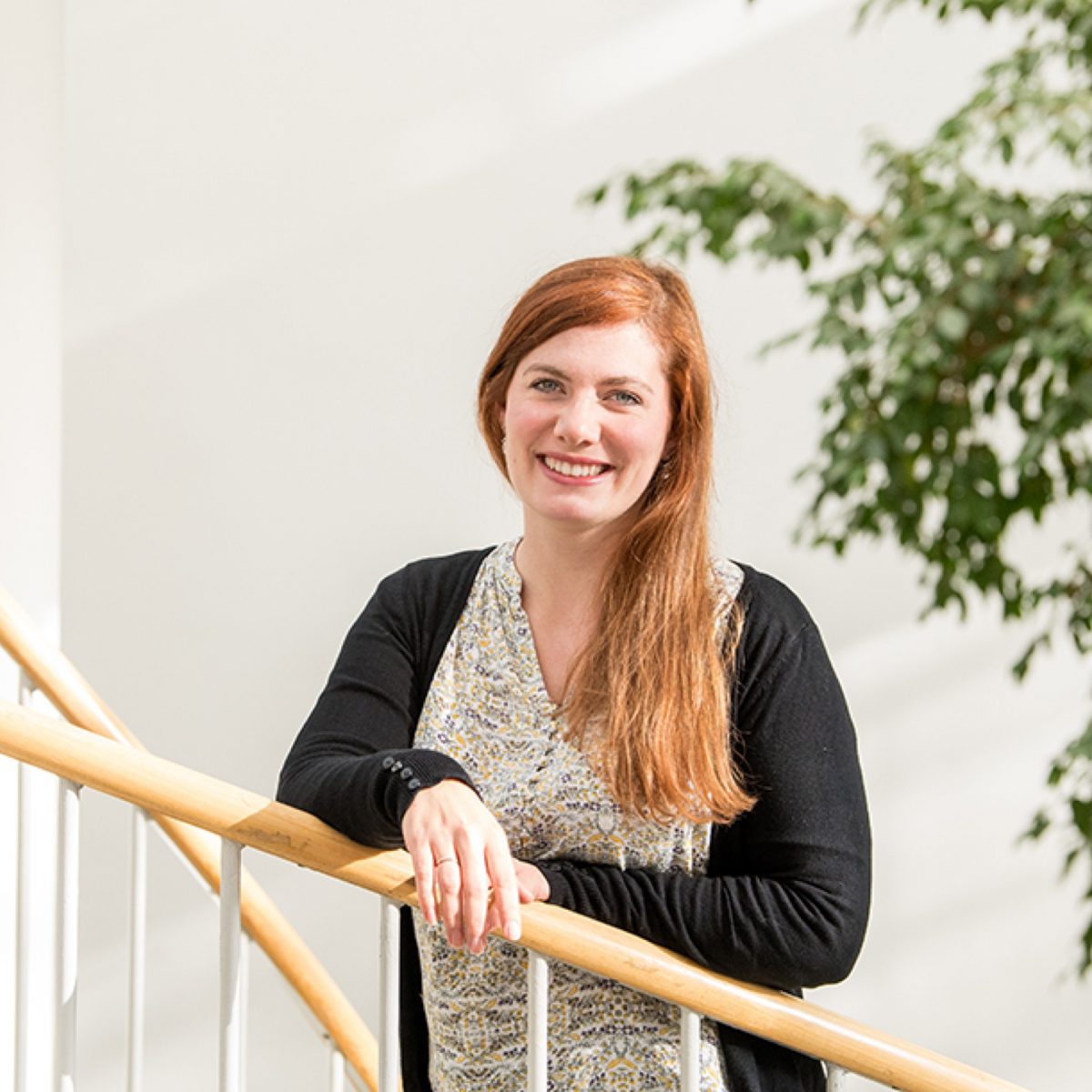
TUM Alumna Aude Zingraff-Hamed is a post-doctoral researcher at TUM in the area of natural solutions to flood protection. As a mentor, she strives to encourage young scientists to have both a career and children. (Image: Astrid Eckert/TUM).
After completing a German-French diploma in landscape architecture, Aude Zingraff-Hamed also earned a Master of Science in ecology in 2011 and went on to complete her doctorate at TUM. Her husband supports her passion for urban river restoration, flood management and climate protection.
German-French double doctorate
Despite the linguistic hurdles, Aude Zingraff-Hamed decided to do her doctorate at both a French institution and the TUM in Munich. She tirelessly pursued her life’s work of restoring rivers to health, finally securing funding for her double doctorate from the French Ministry of Higher Education, Research and Innovation, as well as support from the UNESCO Chair River Culture.
Usually the French ministry makes ten funding offers in this area: it specially awarded Zingraff-Hamed the eleventh funding offer on account of the relevance of her topic. Formal age restrictions on the funding meant that she had to respond to the offer immediately. And so she began work at once on her transnational research project, even though at the time she was seven months pregnant. “I could either begin straight away or not at all,” she recalls.
I didn’t want to give up my big dreams. I wanted to be able to realize my career goals and to enjoy being a mother.
Of course, this balancing act between work and children demands a lot of energy. But the energy does materialize, says Aude Zingraff-Hamed, and her children are a help in this regard. “When I started studying, I wanted to do my part to improve the world for my fellow human beings. Today I’m doing it especially for my children. That’s my greatest motivation.”
Best conditions for female scientists with children
As Aude Zingraff-Hamed points out, it was her three children who were born during her doctorate who made her research possible; “Children force you to be more organized, to improve your time management, to work more effectively, to just toughen up.” But the ambitious scientist also notes that TUM made possible precisely those things that were essential to a mother of three children completing a doctorate: childcare and flexible working hours. “As soon as my children were asleep, I started work, whether at night or on the weekends. You cannot reschedule children but you can reschedule your working hours. TUM and my PhD supervisor gave me this opportunity.”
Brimming with joie de vivre, Zingraff-Hamed flies from one international conference to another – with her children in tow. She explains that if no family member is available to take care of her children, often the conference organizers offer local childcare. “Many mothers don’t dare to ask about these options, which are in fact available.” Aude Zingraff-Hamed is currently working as a post-doctoral researcher at TUM on an H2020 EU project in the area of natural solutions to flood protection. As a mentor, she strives to encourage young scientists to have both a career and children. According to Zingraff-Hamed, “You do not need to separate your career and your children. Children are not a burden; they enrich your life.”
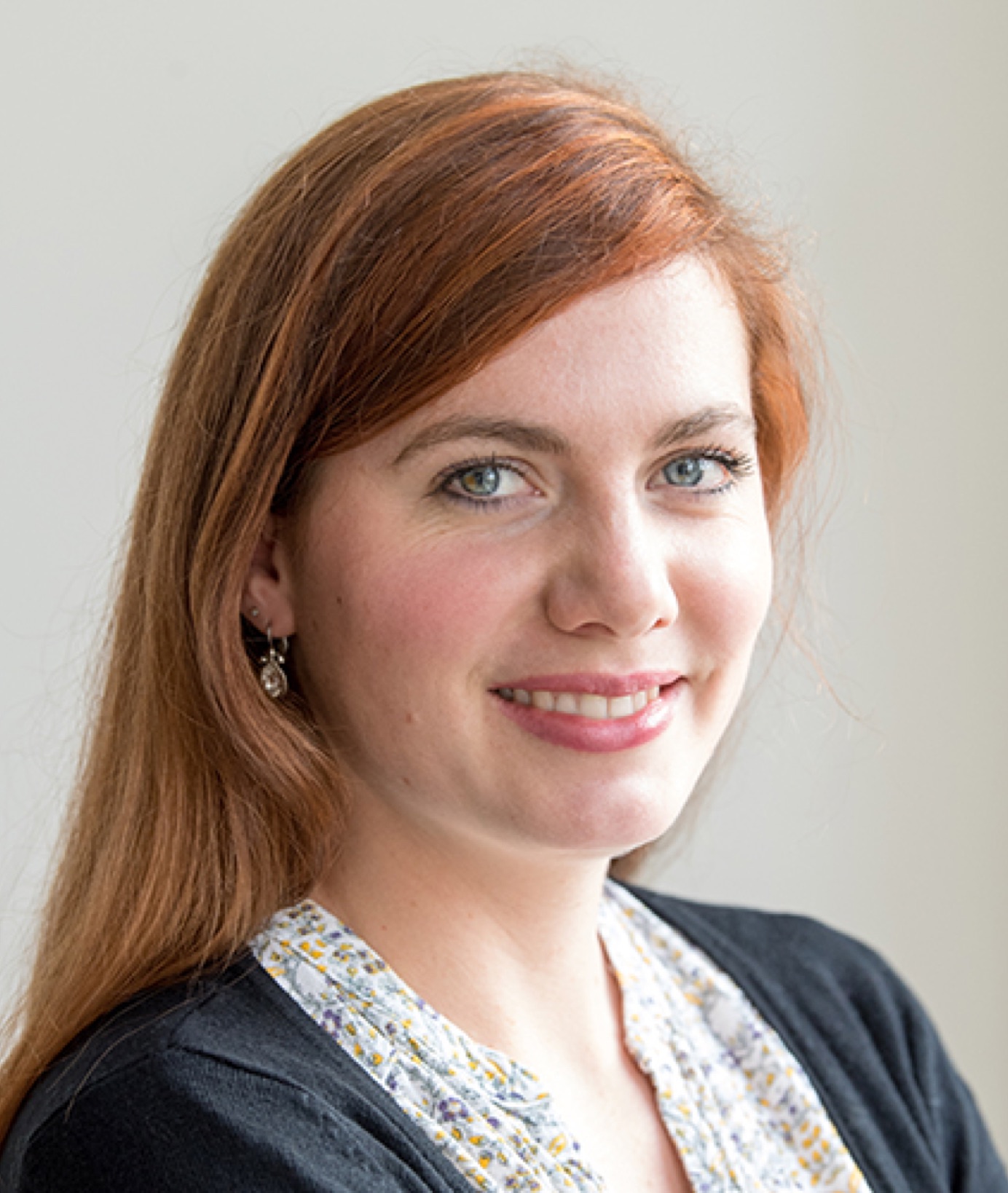
Aude Zingraff-Hamed (Image: Astrid Eckert/TUM).
Degree in Landscape Architecture 2011, Doctorate 2018
Aude Zingraff-Hamed earned her Master of Science in Ecology at the University of Angers in 2011 after completing her German-French Diploma in Landscape Architecture at the Weihenstephan-Triesdorf University of Applied Sciences and the French Institut National d’Horticulture et de Paysage in Angers. In 2018, she completed her doctorate on urban river restoration at the University of Tour (PhD in Social Sciences/Governance and Planning) and at TUM (PhD in Natural Sciences/Ecology). At the TUM Chair for Strategic Landscape Planning and Management, she is currently conducting research in the field of natural flood protection as part of her post doctoral position. In addition, she is a lecturer in the science faculty at the University of Angers. She gave birth to her three children during her five-year doctorate. They accompany their mother worldwide on research trips and lectures and proudly report that their mother is saving sick rivers.
